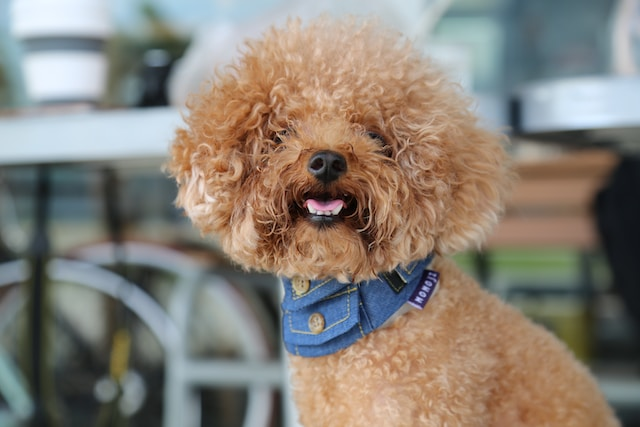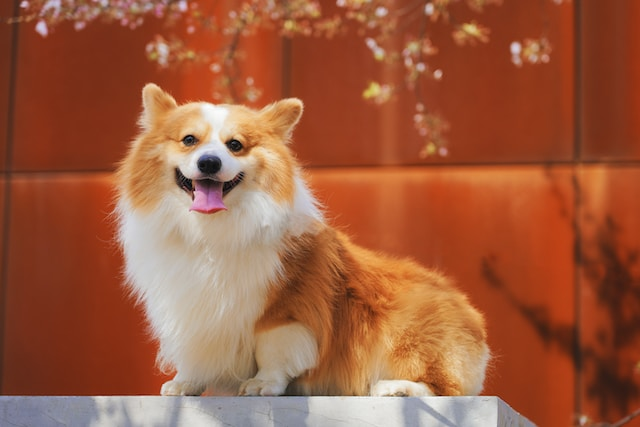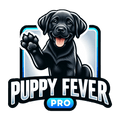737-215-3211

Puppy Teething Solutions for Small Breeds: Best Tips & Tricks
As a pet parent, watching your tiny, furry friend go through the teething phase can be both an endearing and challenging experience. Small breed puppies, with their unique needs and adorable quirks, require special attention during this crucial developmental stage. Teething, an essential part of their growth, can be uncomfortable for these little ones, and knowing how to ease their discomfort is key to their well-being.
Information is essential to being a responsible dog owner. Here's everything you need to know about puppy teething symptoms, solutions, and tips, all puppy owners should know!
Understanding Puppy Teething In Smaller Breeds
Puppy teething in smaller breeds is an important developmental phase requiring special attention due to the unique characteristics of these breeds. Understanding the puppy teething timeline and how it differs from larger breeds can help pet owners provide better care and support during this period.
Teething Timeline in Smaller Breeds
Understanding when and how these little ones develop their teeth is crucial for providing the right care and support during their early growth stages.

-
Birth to Two Weeks: Puppies, regardless of breed size, are born without teeth just like human babies.
-
2-4 Weeks of Age: The first puppy teeth to erupt are the incisors, which are the small front teeth. In smaller breeds, this might occur slightly earlier compared to larger breeds.
-
4-6 Weeks: The canine puppy's baby teeth start (the sharp, pointed teeth next to the incisors) to appear. At this stage, small breed puppies often have their full set of baby canine teeth.
-
12-16 Weeks: This is when the teething process becomes more noticeable and when the permanent adult teeth emerge. The puppy baby teeth (deciduous teeth) begin to fall out, and the permanent puppy's adult teeth start to grow in. For small breeds, growing permanent teeth can occur faster than larger breeds.
-
6-7 Months of Age: By this age, most small breed puppies have their full set of permanent adult teeth, which totals 42 teeth. This process can take longer in larger breeds, sometimes up to 8 months.
Differences in Teething Between Small and Large Breeds
Explore the key differences in the teething process between small and large breed puppies. Here are a few:
-
Size of the Jaw and Teeth: Small breeds have smaller jaws and teeth. This can lead to challenges like overcrowding, which might not be as prevalent in larger breeds with more jaw space.
-
Rate of Development: Small breed puppies often develop their teeth at a slightly faster rate compared to larger breeds. This means the teething pain, sore gums, discomfort, and associated symptoms might be more condensed in time.
-
Risk of Dental Issues: Due to the smaller size of their jaws and teeth, small breed puppies are at a higher risk for certain dental issues like misalignment of the dog's adult teeth or retained baby teeth. This is less common in larger breeds, where there's more space for teeth to grow properly.
-
Chewing Needs: While all puppies chew to alleviate teething discomfort, small breed puppies may require different types of chew toys that are size-appropriate and softer, as their jaws are not as strong as those of larger breeds.
-
Sensitivity: Small breed puppies might exhibit more sensitivity during teething due to the rapid development of their teeth and the potential overcrowding in their small mouths.
Common Puppy Teething Symptoms
Puppy teething in small breeds, much like in all puppies, is accompanied by a variety of symptoms. However, due to their smaller size and distinct characteristics, some of these teething puppy symptoms may be more pronounced or require special attention. Here are common symptoms in small breed puppies:
-
Excessive Chewing and Biting: Like all teething puppies, small breeds have an urge to chew as a way to relieve gum discomfort. You may notice them chewing more than usual, often on anything they can get their mouths on, including furniture, shoes, and teething toys.

-
Drooling: Increased drooling can be a sign of teething in small breed puppies. This may be more noticeable in certain breeds, especially dogs with more compact jaw structures.
-
Whining or Fussiness: Teething can be uncomfortable, leading to increased whining or fussiness. Small breeds may become more vocal or irritable during this period.
-
Red, Swollen, or Bleeding Gums: The gums may appear red, swollen, or even bleed a little as the new dog's teeth push through.
-
Loss of Appetite: Some puppies may eat less or show less interest in food due to the discomfort in their gums.
-
Bad Breath: As new puppies teeth emerge and old ones fall out, bacteria can accumulate in the mouth, leading to bad breath.
-
Visible Missing Dog's Teeth or New Teeth: You might notice gaps where baby teeth have fallen out or spot new adult teeth coming in.
-
Changes in Chewing Habits: Puppies may chew differently or prefer different types of dog toys or textures due to the changing sensations in their mouth.
-
Rubbing Face on Objects or with Paws: To relieve gum discomfort, some puppies may rub their face against furniture or use their paws to massage their gums.
-
Decreased Interest in Play: Due to the discomfort, some puppies might temporarily lose interest in play or be less active.
Effective Puppy Teething Solutions for Small Breeds
Effective teething solutions for small breed puppies are essential to help them navigate the discomfort of the teething process while ensuring their safety due to their smaller size. Here are some effective strategies and solutions:
Size-Appropriate Chew Toys
Select chew toys that are specifically designed for small breeds. This helps promote healthy chewing habits and keeps their puppy teeth healthy. A chew toy should be small enough to fit comfortably in their mouths but large enough to avoid choking hazards. Toys made of soft rubber or flexible materials can provide relief without damaging their delicate baby teeth.

Cold Chew Items or Frozen Toys
Offer cold chew items to soothe sore gums. You can freeze a wet washcloth, special puppy teething rings, or safe edible items like carrots. The cold helps reduce inflammation and numbs the gums, providing relief for teething puppies.
Teething Gels or Sprays
There are puppy-specific teething gels or sprays that can be applied to the gums to provide relief from discomfort. Always choose a product that's safe for puppies and follow the instructions carefully. Check with your veterinary dentist before using any product.
Dental Chews and Treats
Dental chews and treats made for puppies can be a good option, but make sure they're appropriate for small breeds. They help clean the teeth and reduce tartar while providing a satisfying chewing experience. You can also use Petique Paw Me! Treat Ball Dispenser.
Regular Dental Check-Ups
Regular dental check-ups with an experienced veterinarian are crucial. They can help monitor the puppy’s dental health (milk teeth and permanent teeth), ensuring the pup's adult teeth are growing correctly and there are no signs of dental issues common in small breeds.
Soft Food
If your puppy is experiencing severe discomfort, temporarily switching to soft puppy food can help. This reduces the pressure on their gums and makes eating less painful.
Gentle Gum Massage
Gently massaging your puppy’s gums with a clean finger can provide relief. Be gentle and careful to avoid getting bitten by a sore and irritable puppy. You can wrap a cold towel to your finger and gently massage the gums around your puppy's baby teeth.

Creating a Safe Environment
Puppy-proof your home by removing items puppies shouldn't chew on, like electrical cords, toxic plants, or small objects they could swallow. Before bringing your new puppy home, you should puppy-proof your house first. This ensures your pets are safe, even if their permanent teeth replace baby teeth.
Teething Puppy: Best Tips & Tricks For Pet Parents
Teething can be a challenging phase for both puppies and their owners. Here are some expert tips to help pet owners navigate this period effectively:
-
Understand the Puppy Teething Timeline: Knowing the typical timeline for teething can help you anticipate and understand your puppy's behavior. Most puppies usually start teething around 3-4 weeks of age, with their adult teeth fully in by about 6 months.
-
Provide Appropriate Chew Toys: Offer a variety of chew toys. Different textures and materials can provide relief at different stages of teething. Avoid hard objects that could damage their teeth.
-
Use Cold to Soothe Gums: Cold items can help soothe sore gums. Freeze a wet washcloth or a puppy teething toy. You can also offer frozen treats like carrots, but always under supervision to avoid choking hazards.
-
Encourage Positive Chewing Habits: Praise your puppy when they chew on their toys. Use positive reinforcement to help them understand what is appropriate to chew.
-
Regular Dental Care Check-ups: Take your puppy for regular dental check-ups. This ensures their teeth are developing properly and helps catch any potential dental issues, like periodontal disease, early.
-
Monitor Eating Habits: Some puppies might eat less when they're teething due to gum discomfort. Offer soft food if they seem reluctant to eat their regular kibble.
-
Be Patient and Consistent: Teething is a temporary phase. Be patient and consistent with your training and care during this period.
-
Avoid Human Medications: Never use human dental products or pain medications on puppies. If you think your puppy is in significant pain, consult your vet.

More Dog Owner Tips at Puppy Fever Pro
Having puppies at home is fun and more exciting. However, as a responsible dog owner, you must arm yourself with enough information and knowledge to keep your dogs healthy, happy, and safe. To get more tips and tricks, visit our blogs.
Here at Puppy Fever Pro, all of our dog products and essentials are selected by us — your fellow dog owners. Contact us to learn more!


Leave a comment